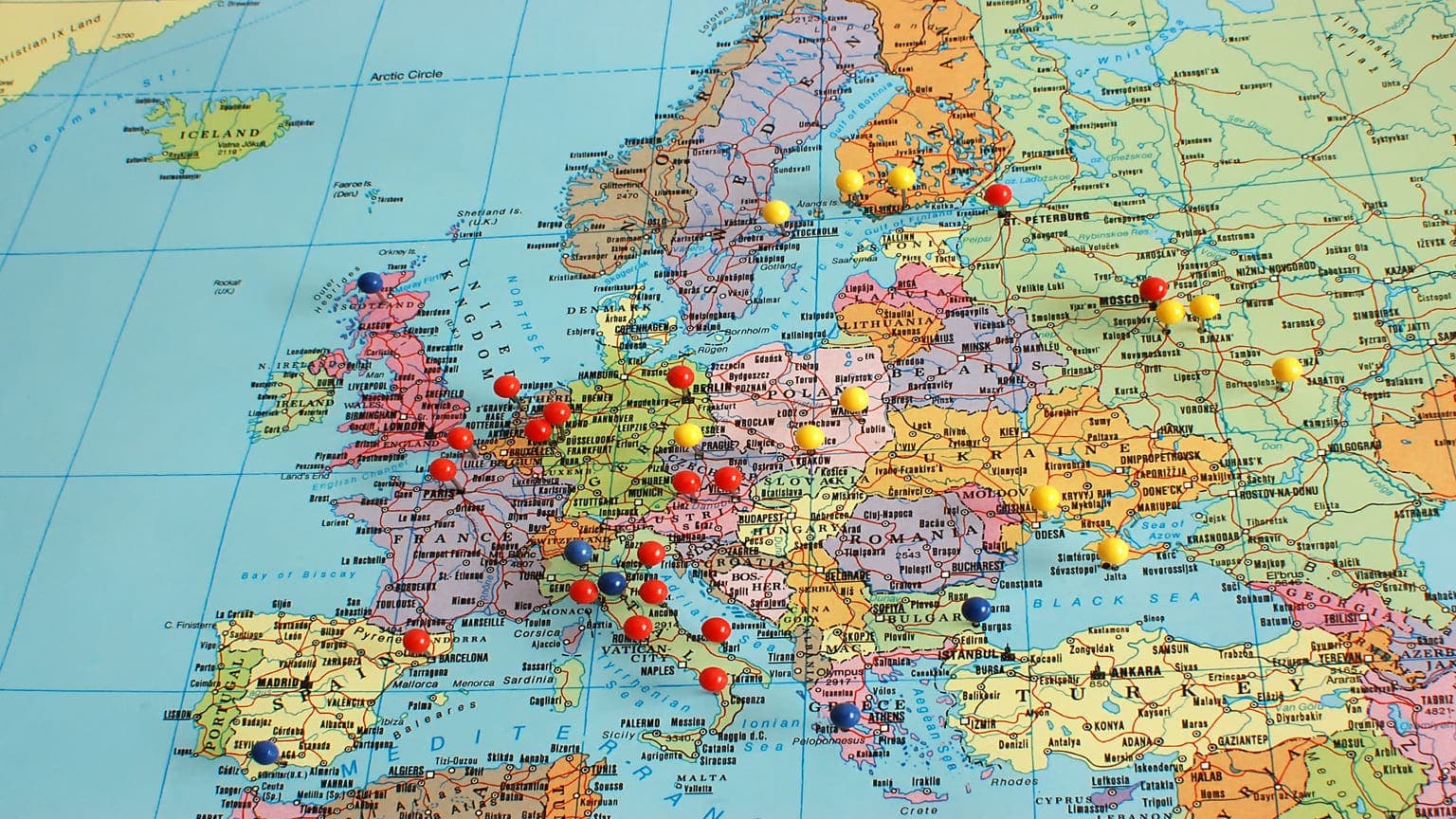Summary
The European Union is not the same as the Schengen Area: some EU countries are not part of the Schengen Area, and vice versa.
These differences can restrict visa-free travel for second passport holders, and they need to be considered when selecting the European country where you want to live.
Learn which countries are visa-free for EU residents.
Concepts and composition of the EU and Schengen Area
The European Union and the Schengen Area have different concepts, although many countries are included in both entities. The EU is a political and economic union, whereas the Schengen Area permits the free movement of people among the participating countries.
European Union
The European Union includes 27 countries. It has a common market and foreign policy. The European Union government can influence the internal affairs of the member states by, for example, developing a common policy in the field of agriculture or regional development.
Schengen Area
The Schengen Area is a visa-free space consisting of 29 states. Travelling between Schengen countries is free of border control. However, a citizen of a country outside the Schengen Area needs a valid visa to enter the Schengen Area.
Which countries are members of the EU and Schengen Area?
The European Union and the Schengen Area are composed of both common and different countries. Some countries are part of both entities, while others belong to only one of the two entities.
Countries that are both in the EU and the Schengen Area are the following:
-
Austria.
-
Belgium.
-
Bulgaria.
-
Croatia.
-
Czechia.
-
Denmark.
-
Estonia.
-
Finland.
-
France.
-
Germany.
-
Greece.
-
Hungary.
-
Italy.
-
Latvia.
-
Lithuania.
-
Luxembourg.
-
Malta.
-
The Netherlands.
-
Poland.
-
Portugal.
-
Romania.
-
Slovakia.
-
Slovenia.
-
Spain.
-
Sweden.
EU states that are not part of the Schengen Area are Cyprus and Ireland. However, Cyprus applied to join the Schengen Area in 2025.
The Schengen rules apply to four non-EU states that are European Free Trade Association members: Iceland, Liechtenstein, Norway, and Switzerland.
Travel opportunities, depending on the country of residence
The rights of a country’s residents and citizens depend on which entity their state belongs to. In any case, a residence permit allows the holder to enter the country of residence without a visa for unlimited time until the residence permit is valid.
Both EU and Schengen residents
25 countries are part of both the European Union and the Schengen Area. A residence permit issued by any of these countries allows the holder to spend 90 out of 180 days in any Schengen country and any country in the European Union.
EU but not Schengen resident
Some states are members of the European Union but are not included in the Schengen Area. A residence permit issued by such a state allows the holder to travel without a visa only to those EU countries that are also not part of the Schengen Area.
Therefore, an Irish resident permit holder can travel to Cyprus without a visa. However, they will require a visa to travel to France, Germany, Austria, or any other EU country.
Schengen but not an EU resident
With a residence permit issued by a country that is part of the Schengen Area but not the EU, the holder can only visit those Schengen countries that are not part of the European Union without a visa.
EU citizens
EU citizens can move to other EU countries, as well as to Liechtenstein, Switzerland, Iceland, and Norway. They can also travel without a visa within the Schengen Area. This rule applies to all EU citizens, including countries belonging only to the European Union but not the Schengen Area.

Ireland is a member of the EU, but has not joined the Schengen Area. Any EU citizen can visit Ireland without a visa, while an EU resident needs a visa to enter
UK and Ireland: exceptions to be considered
The United Kingdom and Ireland joined the European Union in 1973. However, they did not join the Schengen Agreement because they wanted to maintain their own immigration policies.
Residence permits issued by the EU and Schengen countries do not entitle the holder to travel without a visa to the UK or Ireland. Similarly, for example, residents of Ireland can visit Cyprus without a visa, but not Austria or Germany.
Previously, EU citizens could visit the UK and Ireland without a visa and stay there unlimitedly. Now, after Brexit, they can only do so in Ireland.
In 2020, the UK withdrew from the European Union. From January 1st, 2021, citizens of the European Union can visit without a visa as tourists for up to 6 months only. They need a visa to work, study or get married in the UK.
European countries that are not part of either the EU or the Schengen Area
Some European countries, such as Serbia, Montenegro, Albania, and North Macedonia, are not part of the European Union or the Schengen Area.
Citizens from some of these countries, such as Montenegroans, can travel without a visa within the Schengen Area.
However, residents of these countries cannot visit the EU or Schengen states without a visa. For example, a residence permit issued by Montenegro, in contrast to Montenegrin citizenship, does not entitle the holder to enter the EU or the Schengen Area without a visa. To travel to the Schengen countries (or the EU), residents of these countries need to get a visa.
How to get residency in the EU: fast and easy routes
The most common paths to obtaining EU residency are employment, study, and family reunification. However, investors, financially independent people, and digital nomads can benefit from easier and faster options.
Investments
Six EU countries grant the so-called Golden Visas, which are residence permits for investors:
-
Portugal provides 2-year residency in exchange for investments of at least €250,000;
-
Hungary grants 10-year residence permits with a minimum investment amount of €250,000;
-
Greece offers 5-year residency by investing at least €250,000 in local real estate;
-
Italy supports business people investing at least €250,000;
-
Malta offers permanent residency by investment of at least €169,000;
-
Cyprus grants permanent residency by property purchase for at least €300,000.
Investors don’t have to permanently relocate or live in the chosen country and take language or history exams. Besides, all countries allow investor’s family members also to become residents.
Passive income
Financial independence and sufficient passive income may bring residency in Portugal, Austria, and Switzerland.
To become a Portuguese resident, a foreigner must prove a passive income of at least €870 a month and rent or buy a residential property there.
In Austria, no minimum required income is established. However, an applicant for residency must rent or purchase accommodation in Austria and prove proficiency in German at the A1 level or higher.
Remote work
Remote work is a path to special Digital Nomad Visas issued by Portugal, Malta, Hungary, Spain, and Italy.
The applicant proves a sufficient income from sources outside the chosen country, such as remote work for a foreign company or freelance. The income requirement varies by country but usually is €2,600—3,500 per month.
In addition to income, a digital nomad also demonstrates enough savings and accommodation to live in the chosen EU country.
Family members can usually join the digital nomad or get residence permits by family reunification.
Why get EU citizenship?
An EU passport holder can:
- choose to live in any of the EU countries;
- open up new business opportunities;
- travel to many countries without visas;
- educate children in prestigious international schools and universities;
- find refuge in case of upheaval in the country of origin.
To obtain citizenship in one of the EU countries, one must live there as a resident for at least 5 years. During this time, they cannot leave the country for more than 6 months a year or 10 months in total.
Malta offers easier terms to those seeking citizenship. Maltese citizenship can be obtained for exceptional merit by direct investment. On this route, citizenship is obtained by naturalisation: applicants spend 1 or 3 years as residents before getting a passport. The minimum investment is €690,000.
To move to another EU country with a Malta passport, the holder needs to register with the local authorities within 3 months of arrival. At the same time, they need to show that they have health insurance, a place of residence, and an income sufficient to live on.
Usually, the required documents are submitted to the police or the migration service.
The opportunity to obtain Malta citizenship by naturalisation for exceptional services has been cancelled. Applicants with genuine ties to the country, whose professional, economic, or social contribution serves Malta’s national interest, can now obtain Malta citizenship by merit.
Key thoughts on travelling with an EU residence permit
-
To gain the right of visa-free travel across the Schengen Area, a foreigner must be a resident of both an EU and Schengen country.
-
The Schengen Area includes 25 of 27 states of the European Union, except for Ireland and Cyprus.
-
Iceland, Norway, Liechtenstein, and Switzerland also comply with the Schengen rules but are not members of the EU.
-
Investments are the fastest and easiest path to EU residency, requiring at least €250,000 and 4 months, depending on the country. There are also simplified options for financially independent people and digital nomads.
-
EU citizens can travel visa-free across the EU and Schengen Area. They also have visa-free access to most countries, including the USA and the UK.
-
Malta offers to obtain citizenship by naturalisation for exceptional services by direct investment in 1—3 years instead of the usual 5 years.
Immigrant Invest is a licensed agent for citizenship and residence by investment programs in the EU, the Caribbean, Asia, and the Middle East. Take advantage of our global 15-year expertise — schedule a meeting with our investment programs experts.

























